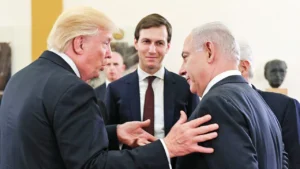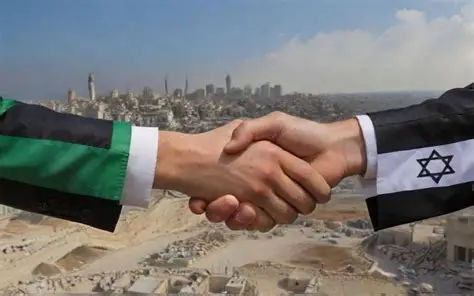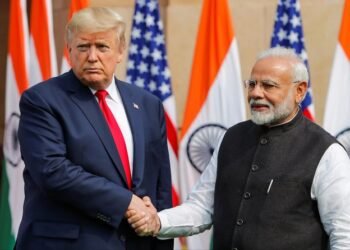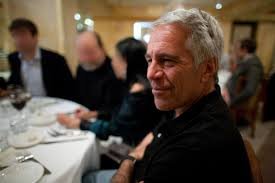The deal, brokered with mediation by Egypt, Qatar, and the U.S., includes a phased Israeli troop withdrawal and mutual exchange of prisoners, though the implementation timeline remains uncertain.
BY Annapurna Nautiyal
Peace in the Middle East has always been elusive because of the constant struggle between Arab nationalism and Zionism, the displacement of Palestinian Arabs by Jews, mutual mistrust, Israel’s expansionist policies, and a series of Arab-Israeli wars. Moreover, the region’s status as a holy land for Jews, Christians, and Muslims — and its location at the intersection of Africa, Asia, and Europe with vast oil reserves — makes it geopolitically crucial for global powers. Every war in the Middle East has been fought in the name of peace, which is often defined as the absence of war and the spread of power. Yet peace is always relative, and its success is measured not by conquest but by stability.
While the success of war is judged by victory and the destruction of the enemy, the success of peace depends on its durability. Such stable and lasting peace has never been achieved in the Middle East since 1948. The many wars fought over the decades, including the ongoing conflict between Israel and Hamas, demonstrate the region’s deep-seated mistrust, disregard for borders, Israel’s continued occupation of territories, and the absence of respect for sovereignty.

If peace were to become a permanent feature, then why, after the 1973 Arab-Israeli war, did all attempts — including the famous shuttle diplomacy and step-by-step approach of U.S. Secretary of State Henry Kissinger — fail to achieve lasting peace? Why has the region, despite its vast oil wealth, remained mired in poverty, disruption, and devastation? Kissinger’s same formula of negotiation for a ceasefire was also applied in Vietnam, earning him the 1973 Nobel Peace Prize along with his Vietnamese counterpart Le Duc Tho. However, Tho refused to accept the award, arguing that true peace had not been achieved even after such intense negotiations. This reflects the ineffectiveness of such diplomatic efforts, especially in a region like the Middle East, which is charged with mistrust, confusion, and deception.
Another such attempt is now being made by U.S. President Donald Trump to end the two-year war between Israel and Hamas, restore peace, ensure the return of Israeli hostages from Gaza and Palestinian prisoners from Israel, and secure an immediate ceasefire through his 20-point “Gaza Peace and Redevelopment Plan.” Trump’s delight at the prospect of peace was evident when he suddenly announced, during a roundtable meeting with conservative influencers at the White House on Wednesday, that Israel and Hamas had agreed to exchange the remaining Israeli hostages in Gaza for Palestinian prisoners. This, he claimed, was a step forward in implementing the first phase of his 20-point plan, unveiled in September 2025.

While presenting his plan, Trump also declared that if Hamas refused to accept it, Israel would receive full U.S. support to “finish the job” and destroy Hamas completely. To show his commitment to peace, Trump even reprimanded Israeli Prime Minister Benjamin Netanyahu for an Israeli strike in Qatar, pointing out that negotiations were still underway and that peace talks were being facilitated behind the scenes through the mediation efforts of Egypt, Qatar, and the U.S. Confident in the mediation role of Arab countries, Trump expressed no doubt that his initiative could bring an end to the prolonged conflict between Israel and Hamas.
Interestingly, Prime Minister Netanyahu, while accepting the peace proposal, reiterated his firm position that the conflict would not end until all hostages were returned and Hamas was completely disarmed. Nevertheless, Israel and Hamas agreed on Thursday to begin the first phase of a ceasefire aimed at ending the two-year conflict, although the exact timeline for implementing the agreement remains unclear. Hamas, for its part, insisted that it would not disarm until Israeli troops had fully withdrawn from Gaza and a permanent ceasefire was established. It also demanded guarantees that Israel would not launch new strikes once the hostages were returned. However, Trump’s ultimatum — that if the deal was not signed by October 5, 2025, Hamas would “face all hell” — compelled the group to sign the deal within the deadline.

READ: Bihar: 2.9 Lakh Litres Seized, 6,000 Arrested Ahead of Polls
Early on Friday, Israel announced that it had approved a deal ensuring the release of all hostages held in Gaza, both living and deceased. This paved the way for a halt to the ongoing war and the exchange of prisoners. Netanyahu described the agreement as both a diplomatic success and a moral victory for Israel. He praised President Trump — calling him a great friend of Israel — for his tireless efforts and unwavering commitment to peace, security, and the freedom of hostages.
Mahmoud Abbas, the President of the Palestinian Authority, also hailed the agreement, expressing hope that it would lead to a lasting and stable political solution by ending Israel’s occupation and paving the way for the establishment of an independent Palestinian state based on the 1967 borders with East Jerusalem as its capital. He commended President Trump and all mediators for their serious efforts in reaching and finalizing the agreement and expressed the Authority’s willingness to work with all partners to ensure its success. Abbas added that the sacrifices of the Palestinian people would not go in vain and reaffirmed the Authority’s commitment to the national right of freedom and self-determination. Iran also welcomed the peace deal.
India too expressed satisfaction with the U.S.-brokered agreement between Israel and Hamas, which paves the way for the release of hostages on both sides, a phased withdrawal of Israeli troops, and an end to the two-year-long war. Prime Minister Narendra Modi, in an online post, praised both President Trump’s initiative and Netanyahu’s strong leadership, hoping that the agreement would lead to a stable and lasting peace in the Gaza Strip. Modi had earlier appreciated Trump’s peace plan in September and, following the recent announcement of the deal, publicly endorsed Trump’s efforts at least four times. This reflects India’s keenness to advance ongoing trade negotiations with the U.S. and its hope that Washington might ease certain economic sanctions — a leverage tool often used by Trump to pressure nations through economic disruptions.
Despite uncertainties and Israel’s historically tense relations with its neighbors, Trump seems determined to project himself as a “peace president” and a worthy candidate for the Nobel Peace Prize. His boastful remark that “everyone loves me and loves Israel” revealed his self-promotion. He even told Netanyahu during a phone call that Israel “could not fight the whole world” and therefore had to agree to the peace deal. Under the terms of the agreement, Israeli hostages are to be released by Sunday or Monday, and Hamas prisoners within 72 hours of the ceasefire’s implementation. Trump further clarified that Israeli troops would withdraw to an agreed line as the first step toward a durable and lasting peace.
READ: Trump Declared in ‘Exceptional Health’; Heart Age 14 Yrs Younger
Although many aspects of the peace plan remain uncertain, Trump announced that substantial aid packages were already being prepared for Gaza’s redevelopment — another sign of his eagerness to earn the Nobel Prize. His diplomacy reflects a willingness to go to any length to satisfy personal ambition and ego. Awarding the Nobel Peace Prize to a leader who once deployed the National Guard against his own people and whose policies have fueled unrest and division both within the U.S. and internationally would have been inappropriate. Yet, if peace is truly restored in Gaza, it would mark a genuine and valuable contribution to global stability.
(The Writer is former Vice Chancellor, HNB Garhwal (Central) University, Srinagar, Garhwal, Uttarakhand)














